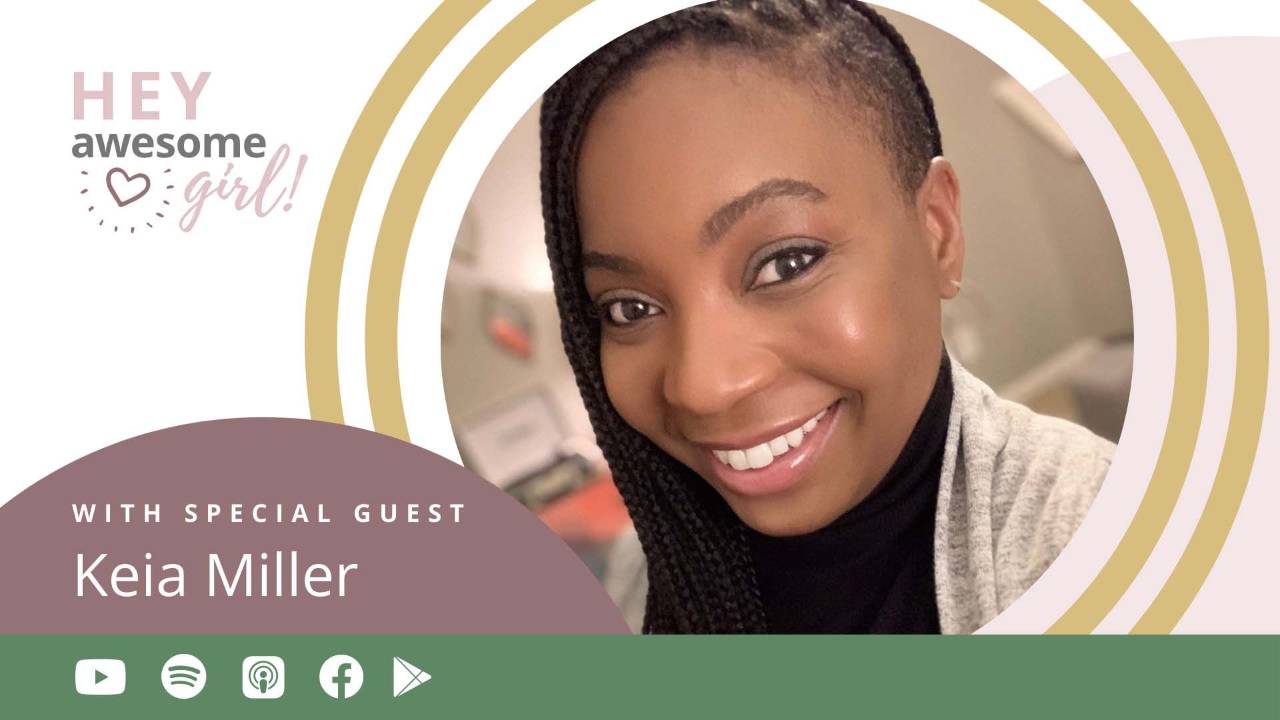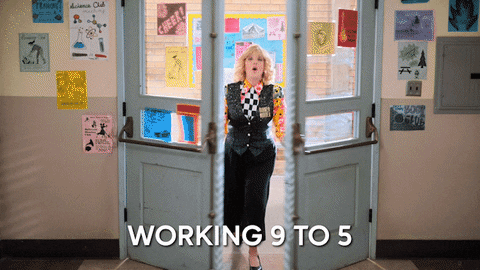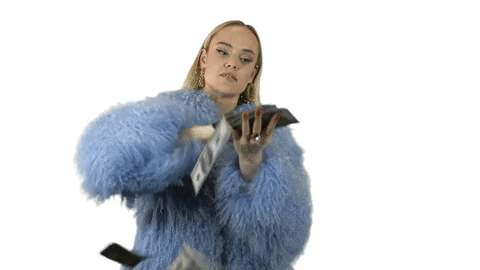
Keia Miller On Her Breast Cancer Previvor’s Journey
Apr 26, 2022Season 1: Episode 11
In the eleventh episode of Hey Awesome Girl with Tivi Jones, you’ll meet Keia Miller, Counsel with the Department of Veterans Affairs and certified Equal Employment Opportunity (EEO) Investigator. She opens up about her journey as a breast cancer previvor.
Keia Miller had given her doctors the same family history for 10 years, but even though there was a history of cancer on both sides of her family, no one ever suggested doing genetic testing. That changed when she was assigned a new doctor who happened to be a woman of color. A few weeks later, Keia Miller tested positive for a gene called PALB2, which meant she had a genetic mutation that predisposed her to breast, ovarian, and pancreatic cancer.
At that moment, at 36-years-old, she was presented with the most important question of her life: Should she undergo a double mastectomy or alternate between an MRI or a mammogram every six months? This was a choice she wished no one ever had to make. What followed was an emotionally, psychologically, and physically draining journey.
In this episode, Keia Miller, talks to Tivi Jones about her career as Counsel with the Department of Veterans Affairs and certified Equal Employment Opportunity (EEO) Investigator and her life before and after surgery. It’s an emotional episode that raises questions about Black women’s healthcare and inspires others who might be going through the same journey.
GETTING STARTED
After Keia graduated from the University of Alabama School of Law in May 2010, the economy was in crisis and the job market grim. Keia struggled to find a full-time job and ended up taking contract work as a document reviewer, which she did for almost five years. There was an elitist stigma surrounding this work as many attorneys didn’t consider it a “real” job.
Five years later, she moved to Washington, DC, and for a year, worked at a company that had created an e-discovery platform. E-discovery is a form of digital investigation that attempts to find evidence in email, business communications, and other data that could be used in litigation or criminal proceedings. Later, Keia got a job with the Social Security Administration where she stayed for another year before joining the Board of Appeals with the Department of Veterans Affairs, where she’s worked since 2016.
At the Department of Veterans Affairs, Keia writes decisions determining whether or not a veteran who has applied for disability benefits is going to receive them or not. She spends her days going through veterans’ case files reading through all of their medical and military personnel documents. She makes the decision based on the law and facts, for example, whether a particular disability is related to their time served in the military.
Even though it’s serious and sometimes emotionally heavy work, Keia says she always wanted a job that would allow her to be a public servant.
“So for me, it feels like an honor to be the person who goes through these files and gives veterans an answer because sometimes it can take quite a long time. And I am thorough,” Keia says.
There are some details that Keia can remember from certain files, such as what the veterans had to go through during the war or after and how many have had PTSD. “Some stories stick out and linger, but mostly this works feels like a privilege, and that’s how I don’t find it to be too burdensome or too heavy at all,” she says.
ADVICE FOR PROSPECTIVE LAW SCHOOL STUDENTS
Keia’s advice to future law students is– “Be very sure it’s what you want to do because law school is probably one of the hardest things I’ve ever done in my life.”
She notes that being in law school can make you feel like a failure and that doesn’t end after you graduate. Keia didn’t pass the bar exam the first time she took it and it felt like the world had come to a stop. But now, 10 years later, she looks back at that moment and realizes that it’s okay.
“You’re not going to be perfect at everything. There are gonna be times when you’re disappointed in your performance, in yourself, and how something turns out, but it doesn't mean you're a failure. It doesn't mean that you're not worthy or that you've made a wrong choice. Just make sure it’s what you want, try again, and don’t give up on it,” Keia advises prospective law students.
The competitive nature of law school contributes to the feeling of failure. Keia says in law school, you’re taught to believe that you need to be on top and if you’re not, then you’re “less than,” but not everybody can be the best. You’re advised to work in a big law firm and make a lot of money, but it’s not for everyone.
“The stress is cyclical. In law school, you're taught to shoot for number one, you need to be the best. Then you get out and become an attorney and you're on that same hamster wheel in a sense, and it just keeps going. I don't know what would break that cycle,” Keia says.
The benefit of working for the government is that it’s a little less stressful. Keia knows her day is going to end around 6:30 pm and she only works four days a week remotely.
“It sounds like you’re winning to me,” Tivi says.
“It feels like a win to me too,” Keia responds.

PREVIVOR JOURNEY
As impressive as Keia’s career has been, it’s not the focal point of this episode. She opens up to Tivi, our host and one of her best friends, about being a breast cancer previvor. A previvor is someone who has an increased predisposition to being diagnosed with cancer due to a risk running through their family. The term is meant to explain how many of these people feel about having a higher chance of developing cancer and the struggles they go through to navigate this distinction.
Keia’s previvor journey started in 2018 when she went to her regular ob-gyn appointment. She was paired with a doctor she hadn’t seen before, who looked through her chart, noticed her family history, and asked if she’d ever had genetic testing done. Keia wasn’t even aware of genetic testing before. The doctor recommended getting the test done, given that both sides of Keia’s family had a history of cancer.
She was tested and, a few weeks later, the results came back positive for a gene called PALB2, which meant Keia had a genetic mutation that predisposed her to breast, ovarian, and pancreatic cancer. However, her doctor was mostly concerned about breast cancer because Keia’s mom had it twice. At the time of the diagnosis, no drastic decisions were made, but she was advised to monitor herself by alternating between MRI or a mammogram every six months for the rest of her life. She did that for a couple of years while she lived in the DC area, but once she moved to Raleigh, she was paired with a doctor at the UNC Breast Cancer Clinic.
The doctor spoke to her frankly about the option of undergoing a double mastectomy. Keia had to sit down–she couldn’t bear the idea of losing her breasts at the age of 36. It was not an easy decision, but, in the end, Keia decided she would rather do the surgery than have to get MRI or mammogram done every six months and be anxious if it was going to be the one that shows cancer. Undergoing a double mastectomy would cut her risk of breast cancer down to 5 percent.
The rates of death and severe illness are a lot higher among Black women than their white counterparts. Keia says when she was scouring the Internet and social media for information about preventative surgery, she didn’t see enough Black or Brown women speaking up on social media platforms. It was mostly white women.
“So that just made me wonder if Black women were even aware of the genetic testing.” Keia says. “I’d been giving the same family history to doctors for almost 10 years and nobody had ever said anything. It made me wonder–my new doctor happened to be a woman of color, was that why she even suggested genetic testing to me?”
The emotional toll of living as a previvor was unimaginable, but Keia says the anticipation of the surgery was the hardest part. “I have never felt crazier in my life. I was so anxious because I’d never had surgery before. My biggest fear was dying under anesthesia while trying to prevent a disease I didn’t even have yet,” she says.
Keia was also worried about the emotional toll her decision would take on her loved ones. It was hard to be vulnerable enough to ask people for help after the surgery. “I couldn't be alone and I needed people to physically be here in my home and help take care of me. That was a lot for me,” she says.
Right before the day of the surgery, Tivi and Keia’s other friends took her on a trip to the mountains.
“I cannot tell you how much I needed that weekend with my girls to cry about the fact that I’m going to lose my breasts at 36 years old. I fully recognize it's a privilege to even be able to choose to do it before diagnosis, but it was difficult. It's a choice I wish nobody ever had to make,” Keia says.
Thankfully, the surgery went well and there were no complications, but seeing herself after the surgery, was one of the most traumatizing parts of the process.
“The first time that I saw that they were gone, I almost passed out. My mom had to get me a cold cloth. I couldn’t hear and I couldn’t see–it was just that traumatic. I had to remember this was just part of the process and it would get better. Also talking about it with my sister and friends, and therapy helped,” Keia says.
Tivi points out that people think grief only shows up when you lose a loved one, but grief also shows ups when your expectations have to change. “Sometimes grief is just change management,” she says.
Keia says it was only in therapy that she realized that she was grieving the loss of a body part she really liked and didn’t want to lose. “I think just hearing my therapist say to me what I was feeling was grief validated my feelings and gave me permission to grieve.”
A SOURCE OF STRENGTH
Tivi asks what Keia’s source of strength was during that difficult period. Keia responds: “I have to say, my sister. I love my sister.”
At this moment, Tivi starts tearing up, remembering everything her friend had to go through. Keia leaves the screen for a second to get a tissue. “I knew we’d be crying,” she says.
Doing this interview is hard for both of them, but perhaps also cathartic. Talking openly about being a previvor helps other women, especially women of color, know that they are not alone in this experience.
Keia speaks highly of her sister: “She’s a wife. She’s a mom. And she has the same genetic mutation. So she is watching me and listening to me go through all my fears and still showing up to support me, even though this is essentially her life too. She's just such a great person. I get a lot of my strength from her. She's the younger one but if there's somebody I want to be when I grow up or be more like–it's her.”
Shout out to all the amazing siblings out there!

In addition to her sister, Keia highlights her friends as one of the biggest sources of strength.
“If there’s something I know for sure about this life is that one of my biggest blessings has been my friends,” Keia says.
“The way y’all showed up for me–I can’t even put into words what it meant to me knowing that I had y’all’s support,” she continues.
Therapy has also been key for Keia’s recovery and mental health. “I wish I started going to therapy 10 years before I actually did,” she says.
PLEASURE EASE AND ABUNDANCE
Keia finds pleasure, ease, and abundance in simple and unconventional things. For example, she started ordering groceries during the pandemic and continues doing that to this day because she’d rather relax and watch TV instead of going to a grocery store.
She carves out time from technology and screens and loves going on walks. Keia also likes to take herself out for adventures and dates, like going to a museum or a show. During the pandemic, she developed a skincare routine that she does every day and finds relaxing. Every morning, she puts on earrings to feel a little better since she works full-time from home alone. She also loves to spray on some perfume in the morning.
Tivi jokes, “It’s so you can feel like a rich lady around the house. Smells like luxury.”

Enjoy the full episode on:
Every week Tivi interviews amazing Boss Babes in tech, medicine, law, entrepreneurship, entertainment, parenting, and more about their lives, goals, and how every day, they are working to add more Pleasure, Ease, and Abundance in their orbit.
This show is part business advice, part life coaching, and part real talk with girlfriends. If you’re looking for a show that’s real and relatable but also inspiring at the same time, Hey Awesome Girl with Tivi Jones is the one for you!
Learn more about Keia:
Instagram: @keiafaye
Breast Cancer Resources:
Featured in this episode:
Demi Vitkute is a Media Manager & Producer at Hey Awesome. She’s a passionate storyteller, fashion aficionado + crazy cat mom trying to change the world. She’s a journalist, editor, and media consultant. Demi is the founder of The Urban Watch Magazine and has written for The Washington Post, Inside Hook, and Promo Magazine, among others. You can follow her on IG and Twitter @demiivit.





